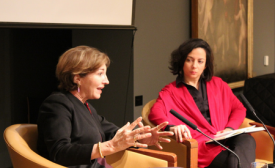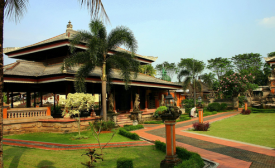public diplomacy
Say that you work for a private security company (PSC) and most people think one of two things: Either you are a mall cop. Or you work for Blackwater, the infamous private security firm, and you go around shooting people.

mer·ce·nary
noun \mr-s-ner-ē, -ne-rē\
: a soldier who is paid by a foreign country to fight in its army : a soldier who will fight for any group or country that hires him (Merriam-Webster)

The rise of Web 2.0 tools created a new, easy-to-use channel for diplomats and public diplomacy bureaus to reach far-flung publics. Many foreign ministries adopted the new technology almost immediately, creating a field called public diplomacy 2.0. New problems appeared quickly though. Social media’s all-in participation creates an environment where messages cannot be controlled as they are framed and re-framed by the twittering masses.

I was delighted to read the CPD Blog written by Anja Eifert on
Every year, select students from the USC Master of Public Diplomacy program at USC Annenberg travel abroad to conduct field research, which furthers the study of public diplomacy and international communications. This year, the Class of 2014 selected São Paulo, Brazil for its unique position in world politics.
Given Indonesia’s rising economic position - despite recent dips – Anja Eifert’s argument that “in ‘America’s Pacific Century,’ Indonesia is constituting a ‘steam engine’ in the Asia-Pacific region, the country should be regarded as a centerpiece of U.S. foreign policy;” that “the U.S. could do more,” in the context of public diplomacy, and that “it must propagate deeper engagement with words and deeds.”
Successful public diplomacy is based on providing foreign publics what they need, be it information, a vaccination program, or help in securing economic well-being. A good example of working toward the latter can be found in a speech delivered by U.S. Assistant Secretary of State Anne Patterson in Jordan on February 25, during which she outlined some of the steps the United States is taking to "enhance regional trade and investment that will spur growth and jobs."
Undersecretary of State for Public Diplomacy, Rick Stengel, is responsible for leading the country’s public diplomacy outreach, and he joins Morning Joe to discuss his new role as well as the latest developments in the Ukraine.







